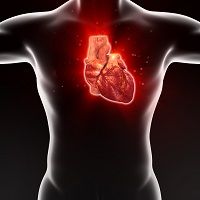ART Can't Reduce HIV-Associated Arterial Inflammation
Study results show that newly initiated combined antiretroviral therapy (ART) in treatment-naïve patients with HIV appears to not effectively prevent the progression of significant arterial inflammation.

Results of a small, Massachusetts General Hospital-based study indicate that newly initiated combined antiretroviral therapy (ART) in treatment-naïve patients with HIV appears to not effectively prevent the progression of significant arterial inflammation. The research team suggests that strategies to complement ART would be needed to reduce the elevated arterial inflammation that is thought to contribute to the increased risk of cardiovascular disease seen in patients with HIV.
“Our previous studies have found that persistent arterial inflammation may predispose people living with HIV to the development of high-risk coronary artery plaques that are potentially more likely to rupture and cause a heart attack,” said lead study author Markella Zanni, MD, an Assistant Professor of Medicine in the Program in Nutritional Metabolism of the Neuroendocrine Unit at Mass General. “Our findings suggest that additional strategies geared toward reducing arterial inflammation among HIV-infected patients receiving ART may be needed.”
With HIV-infected patients on combined ART at increased risk for myocardial infarction—50% to 75% higher when compare with uninfected patients—but the effects of ART on arterial inflammation among treatment-naïve patients previously unknown, Zanni and colleagues sought to determine the effects of newly initiation ART on arterial inflammation and other immune/inflammatory indices in this patient population.
Published in the May 25, 2016 issue of JAMA Cardiology, the current study adds to the previous findings of senior author Steven Grinspoon, MD, director of the Program in Nutritional Metabolism at Mass General and a professor of Medicine at Harvard Medical School, who found inflammation in the aortas of patients with HIV at levels that were comparable to those seen in patients with established cardiovascular disease. In that study, patients with HIV had been ART for at least 3 months at baseline and whether inflammation developed before or during ART was unknown.
For the study, 12 treatment-naïve, HIV-infected men who were about to begin combination ART— elvitegravir, cobicistat, emtricitabine, and tenofovir disoproxil fumarate—at an average of 11 months after their original diagnosis were compared with 12 uninfected, age-matched controls in regard to immune system and inflammatory factors. No participants had a history of coronary artery disease or autoimmune of inflammatory disease other than HIV, and none had significant cardiovascular risk factors.
Fludeoxyglucose F 18 ([18F]-FDG) positron emission tomographic scanning for assessment of arterial inflammation, coronary computed tomographic angiography for assessment of subclinical atherosclerosis, and systemic immune and metabolic phenotyping were performed before and 6 months after the initiation of combined ART.
The researchers found that ART suppressed viral loads and increased CD4 T-cell levels in HIV-infected patients. However, 80% of those with the infection developed increased inflammation of the aorta during the 6-month study period. And although ART helped to significantly reduce inflammation in the lymph nodes and somewhat reduce it in the spleen, arterial inflammation increased to levels similar to those seen in previous research of patients already on ART. Coronary artery plaques observed at baseline in 25% of the HIV-infected patients had all enlarged at 6 months, and one patient developed a new plaque during the study.
“Further research is needed to better understand the relationship between persistent immune activation, arterial inflammation and plaque development in HIV infection,” said Grinspoon. “We need to compare the effects of different antiretroviral therapy regimens on arterial inflammation over time. Moreover, we need to investigate the important question of whether administering immune-modulatory strategies along with ART can help suppress arterial inflammation, stabilize coronary plaques and reduce cardiovascular risk in HIV-infected patients.”